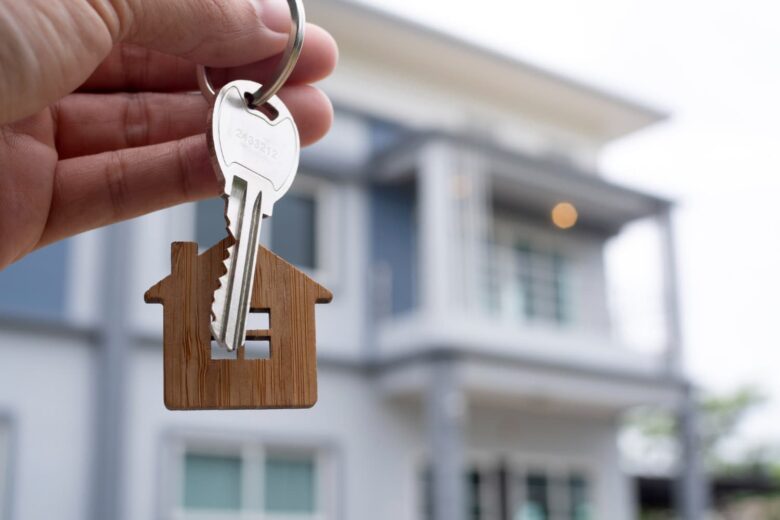Buying a house is one of the most important events in someone’s life. It is not just an investment of money; it is also the realization of personal goals and dreams. However, getting your first home can be difficult as the road is often filled with potential problems that can make the dream a tough ordeal. Understanding these common mistakes and avoiding them can make homeownership smooth and full of problems you never expected.
1. Not pre-approved
A big mistake that many first-time home buyers make is jumping into the market without getting pre-approved for a mortgage. This first step is important for many reasons. First, it gives you a real idea of how much money you have, so you don’t get heartbroken when you see a house that’s too expensive for you. Additionally, a pre-approval letter gives buyers a lot of confidence that you are a serious buyer, which can give you an advantage in a bidding war. Not only do you need to know what you can afford, but you also need to be able to show it to buyers and real estate agents.
2. Skip the extra costs
The allure of homes frequently causes new homebuyers to become blind to the numerous additional costs that come with them. In addition to your mortgage and down payment, other expenses such as closing costs, property taxes, renters insurance, and repairs can have a significant impact on your financial situation. People often make the mistake of not estimating the cost of repairs and improvements. Adding up these additional costs from the start will give you a more complete picture of what owning a home costs.
3. Not realizing the importance of a good location
Usually, “location, location, location” applies in real estate. Buying the right house in the wrong place can feel terrible. Consider how the location of your home will affect your daily commute, your ability to get a good education, your safety, and your access to community infrastructure and amenities. An attractive location can not only make your life better but can also increase the value of your home over time.
4. No home inspection
Skipping a home inspection to save money or speed up the buying process could cost you in the long run. A thorough inspection can reveal major issues, such as structural issues, old electrical systems, or hidden water damage. Solving these problems can cost a lot of money and can have a major impact on your living situation. Before you buy a home, have it inspected by a professional to identify any problems that could change your mind.
5. Fall in love with the house
It’s easy to become emotionally attached to a home that resembles your ideal home. But emotional connections can make it difficult to think clearly, causing you to miss big problems or spend too much money. Try to maintain a neutral position and be prepared to leave if necessary. Remember that no home is perfect. By remaining open and realistic in your search, you can make the right choice.
6. Underestimating the value of reselling in the future
You may be focused on finding a home that meets your needs now, but you also need to consider how much it might be worth when you want to sell it. Potential future buyers may be interested in the home based on its planning, nearby schools, and the area’s growth potential. If you want to make money after moving, buying a house that you can sell for a good price can be a good investment.
7. Does not take other mortgage interest rates into account
Taking the first mortgage deal you get is probably not a good idea. There are significant differences between lenders when it comes to interest rates and terms. By comparing rates and conditions, you can save a lot of money over the life of your loan. Compare offers, discuss the conditions, and learn more about the pros and cons of different mortgage products. This work can save you a lot of money in the long run and make you better off financially.
8. Not giving DIY renovations enough credit
As home improvements become successful, the idea of purchasing a home in need of repairs and making it your own can be appealing. That said, it’s important to be honest about your skills, budget, and time. Renovations often take longer and cost more than planned. Living in a built-up area can be stressful and difficult, which can put pressure on your family. If you are interested in purchasing a home that needs repairs, request a professional repair quote. This gives you full insight into the scope and costs of the job.
Conclusion
Ultimately, starting the process of buying your first home is both exciting and scary and requires careful planning and attention. You can make the process smoother by avoiding common mistakes such as skipping pre-approval, not considering additional costs, and not realizing the importance of the location. Remember that buying a home is not just an investment in money, but an investment in your future. By making smart choices, getting professional help, and staying realistic about becoming a homeowner, you can stay happy and financially stable in your new home for the long term. If you don’t make these common mistakes, you’ll be one step closer to finding your dream home and navigating the complex world of real estate.
FAQs
1. Why is it important that first-time buyers in the housing market receive pre-approval for a mortgage?
Getting pre-approved for a mortgage is important because it helps you determine your budget and shows sellers that you are a serious buyer with the money to afford a home, which can help you in a competitive market.
2. What other prices should you consider when buying a house?
When purchasing a home, you will need to consider additional costs such as property taxes, homeowners insurance, homeowners association fees, and maintenance fees. These can have a major impact on your overall budget.
3. How does the location of a house affect its value?
The status of a property directly affects how desirable it is, how safe it is, how easy it is to access amenities, and its future value. A good website can make your life more enjoyable and increase the value of your home when you want to sell it.
4. Do I need a home inspection?
Yes, you should have a home inspection because it can reveal problems you may not see, such as structural damage, mold, or an old electrical system. This can save you a lot of money on future repairs.
5. How do personal relationships influence my choice to purchase a home?
Attachment can make it difficult to think clearly, causing you to miss problems with your property or make poor financial choices that cause you to spend more than you planned. Keep an open mind and think about what will happen in the long term.
6. Why should I consider how much my house will be worth when I sell it?
It is important to consider the resale value of your home as this will ensure that the property remains a good investment and can make you money if you decide to sell it in the future.



